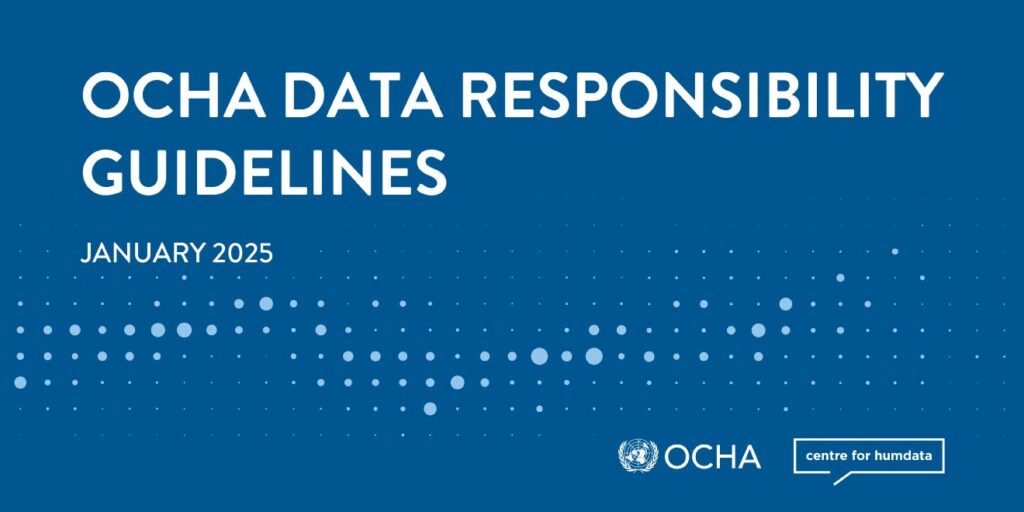Share
Four years after their initial publication, we have revised the OCHA Data Responsibility Guidelines (‘the Guidelines’), which offer principles, processes and tools to ensure the safe, ethical and effective management of data in operational response. The revision aligns the Guidelines with UN Secretariat policy and incorporates feedback from OCHA offices.
The Guidelines offer an overall approach and minimum standard for data responsibility across OCHA. They address how OCHA should implement the IASC Operational Guidance on Data Responsibility in Humanitarian Action (first endorsed in February 2021 and revised in April 2023) and the UN Secretariat Data Protection and Privacy Policy (agreed in 2024).
 The latest version has been updated in the following ways:
The latest version has been updated in the following ways:
- The principles and actions for data responsibility in humanitarian action have been updated in line with the revisions made to the IASC Operational Guidance.
- Details have been added on OCHA’s role in supporting data responsibility within thematic working groups that OCHA may co-lead or provide Secretariat support for (such as cash, accountability to affected people (AAP) and access).
- Information has been added on how OCHA should comply with the UN Secretariat policy.
- The templates have been simplified.
The Guidelines apply to all operational data managed by OCHA (such as who-is-doing-what-where), or data managed by humanitarian actors within activities coordinated by OCHA (such as needs assessments). Data responsibility will continue to be a priority for OCHA as it delivers on its coordination mandate in humanitarian operations.
We will revise the Guidelines as needed. You can learn more about the Centre’s work on data responsibility here. Contact us at centrehumdata@un.org to discuss strategies for adoption of data responsibility in humanitarian operations.